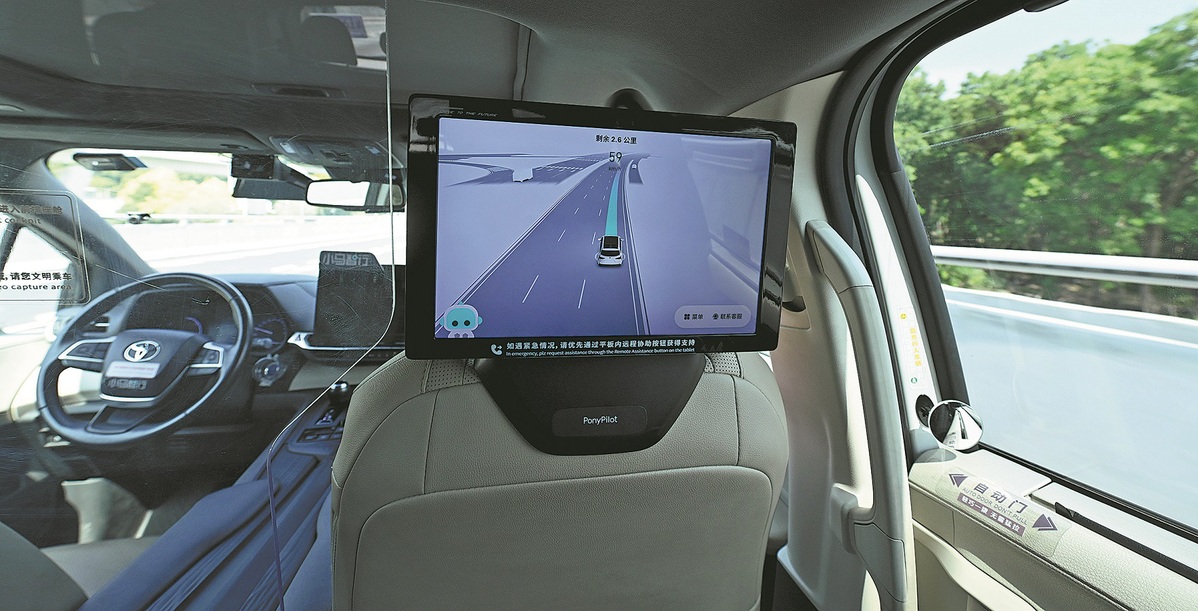How China's robotaxis jumped to top of ranks worldwide
Vast domestic development, favorable policies, tech prowess propel global reach


Domestic strengths
The flurry of announcements signals the start of the globalization of China's autonomous driving sector.
Over the past years, China has become one of the most vibrant testing grounds for autonomous vehicles, with dozens of companies piloting robotaxis in cities from Beijing and Shanghai to Wuhan in Central China's Hubei province and Guangzhou in South China's Guangdong.
Statistics show that as of August 2024, Chinese public security authorities had issued 16,000 test licenses for autonomous vehicles and more than 32,000 km of roads had been opened for testing across the country.
"Autonomous driving is a national strategic priority. Policies like the 14th Five-Year Plan for the Development of the Digital Economy and directives supporting AI demonstration projects clearly define the technology development path," said Zhang Ning, Pony.ai's vice-president.
Zhang, who is also head of the company's Beijing R&D center, said over 50 Chinese cities have local regulations supporting testing and commercialization, with 20 cities designated for integrated "vehicle-road-cloud" pilot programs. This scale is not seen in any other country.
The favorable policies, combined with China's edge in computer and artificial intelligence-related technology and its vast population and complex road conditions, have seen autonomous driving companies making rapid progress.
In April, Pony.ai unveiled its seventh-generation automotive-grade system at the Shanghai auto show. With a designed life of 10 years or 600,000 km, it features a 70 percent reduction in hardware costs compared with the previous edition, said the autonomous driving company.
Its autonomous vehicles have accumulated over 50 million km in mileage, including daily commercial operations in some of China's megacities, including Beijing and Shanghai, as well as testing in other parts of the world.
China also boasts a pool of outstanding talent in the autonomous driving sector and the wider technology sector.
In late August, James Peng, Pony.ai's founder and CEO, was named on the TIME AI 100 list, recognizing him as one of the most influential figures in AI globally.
Also on the list were also Huawei founder Ren Zhengfei, Unitree Robotics CEO Wang Xingxing and DeepSeek CEO Liang Wenfeng.
In the same month, WeRide's founder and CEO Han was invited by the Singaporean government to join the country's steering committee on autonomous vehicles. The committee brings together leaders from the autonomous vehicle and public transport industries, union representatives, and various government bodies to guide the progressive rollout of autonomous vehicles in Singapore.




































